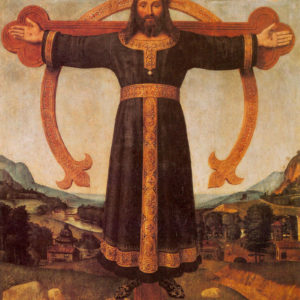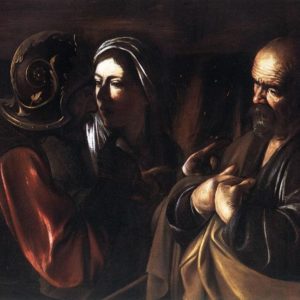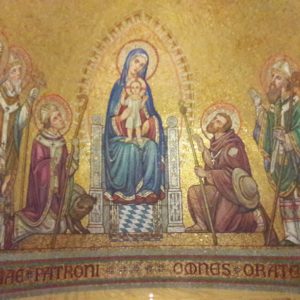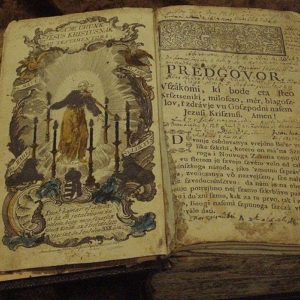That’s a good starting place to talk about the relationship between the Bible and Tradition… and the way in which the Bible is itself a Tradition. Catholics and Protestants often talk past one another on this topic. Protestants tend to hear “custom or rule,” whereas Catholics mean “something passed on.” And it’s too bad, because you simply can’t have Christianity without Tradition.
Tag: apologetics
The Cross and Purgatory
If you understand the message of the Cross, you’ll see why Purgatory makes sense but also why it’s appealing to want to deny it. St. Peter didn’t want to hear about Jesus being glorified through suffering (Matthew 16:21-22), and he didn’t want to hear about how he would be glorified through suffering, either (John 21:17-21). But as St. Paul reminds us, we have been made “fellow heirs with Christ, provided we suffer with him in order that we may also be glorified with him.” Our glorification is through the Cross (His and ours) or nothing at all.
Say Hello to “The Catholic Podcast”!
The Catholic Podcast is LIVE today! Here’s what it is, why we’re doing it, where to find it, and what you can do to listen in and to spread the word.
St. Peter: Rock or Stumbling-Stone?
Today’s the Feast of the Chair of St. Peter, and a worthy time to remember that St. Peter and his papal successors serve as both a Rock and a Stumbling-Block for the Church.
Who is the “One Loaf” in Mark 8?
In Mark 8:14-21, he says that the Apostles are in the boat with “one loaf,” yet they then protest that they have no bread. How can both of these details be true, and what is meant by the “One Loaf” in the bread with the Apostles?
The Hidden Weapon in the Evangelization of the World
I have a new post up for Catholic Answers’ online magazine, looking at the hidden weapon in the evangelization of the world: how the family can convict the world in sin (and what that even means!)
Did the Virgin Mary Die?
In Jerusalem, there’s a Tomb in which Catholics, Eastern Orthodox, Coptic Orthodox, and many Muslims believe that the Virgin Mary was buried before her Assumption into Heaven. But don’t Catholics believe that Mary never died?
The Gospel Call to Christian Unity
The Gospel calls us to take the question of Christian unity seriously. How do we do so?
Catholic and Protestant Bibles, 101
Why do Catholics and Protestants have different Bibles, and how are they different? There’s a lot of misinformation out there, so let me give a basic primer. This isn’t so much looking to convince anyone as just to establish some of the basic facts. So here are 19 points about how we ended up with two different Bibles. I don’t believe that there’s anything in here to which a well-informed Protestant could object…
Is the Eucharist Necessary for Salvation?
Can Protestants be saved, given that they don’t have the Eucharist? In John 6:53-55, Jesus speaks about the Eucharist in a way that seems to suggest that, without it, you cannot be saved: “Truly, truly, I say to you, unless you eat the flesh of the Son of man and drink his blood, you have no life in you; he who eats my flesh and drinks my blood has eternal life, and I will raise him up at the last day. For my flesh is food indeed, and my blood is drink indeed. He who eats my flesh and drinks my blood abides in me, and I in him.” So should we conclude from this that the Eucharist is strictly necessary for salvation?









